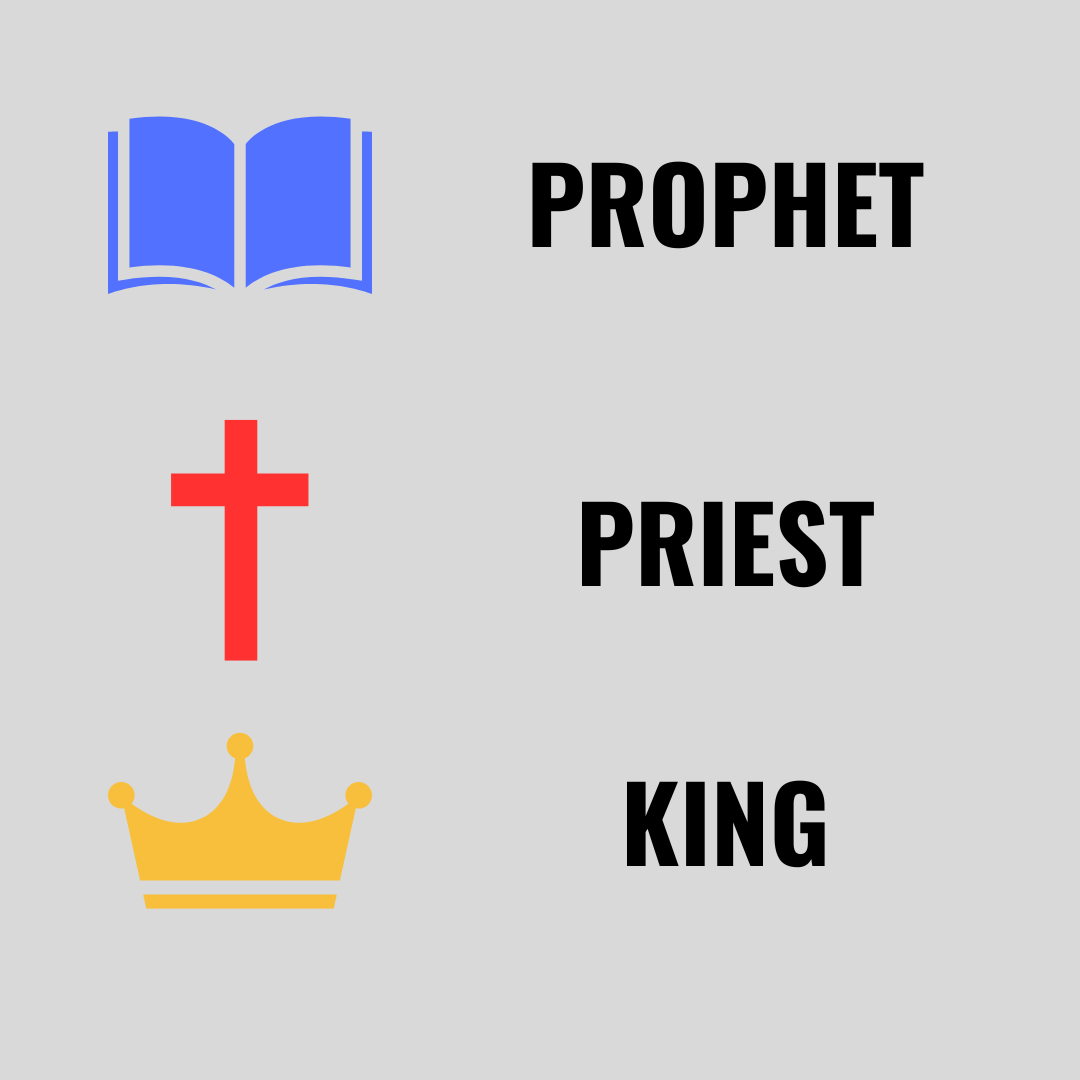By Pastor Stephen Hess –
2024 is an election year, which brings with it countless advertisements from candidates who are running for various offices in local, state, and federal government. An “office” is a role of authority that someone in leadership holds. Just as there are important offices in our government today, God established three key offices of leadership for his people in the Old Testament.
The first office was that of a prophet. Prophets were men and women who were called by God to be his mouthpieces and speak his word to the people. This is why prophets often introduced their oracles by saying, “Thus says the Lord.” When a prophet spoke, it was as if God himself was speaking. As the Lord said to Jeremiah, “Behold, I have put my words in your mouth” (Jer. 1:9).
The second office was that of a priest. Priests were men who were appointed to mediate between God and his people. Since a holy God cannot be in relationship with a sinful people, he appointed priests to serve as mediators. The priests would enter the temple to act as representatives of the people and offer sacrifices on their behalf. In doing so they provided atonement for the people’s sins so that God could dwell among them.
The third office was that of a king. Kings were men who were chosen by God to rule over the kingdom and govern his people. The people of Israel were not governed by a democracy but a monarchy—a royal line of kings who inherited the throne from generation to generation.
 These three offices—prophet, priest, and king—were the central roles of authority in ancient Israel. What many people don’t realize, however, is that these are also roles of authority that are held by Christ. When the Son of God came into the world, he held not just one of these offices but all three simultaneously! As the Westminster Shorter Catechism states, “Christ, as our Redeemer, executes the offices of a prophet, of a priest, and of a king, both in his estate of humiliation and exaltation” (Q.23). Not only is Jesus unique because he holds all three of these offices at once, but he is also unique because he fulfills each of these offices to the ultimate degree.
These three offices—prophet, priest, and king—were the central roles of authority in ancient Israel. What many people don’t realize, however, is that these are also roles of authority that are held by Christ. When the Son of God came into the world, he held not just one of these offices but all three simultaneously! As the Westminster Shorter Catechism states, “Christ, as our Redeemer, executes the offices of a prophet, of a priest, and of a king, both in his estate of humiliation and exaltation” (Q.23). Not only is Jesus unique because he holds all three of these offices at once, but he is also unique because he fulfills each of these offices to the ultimate degree.
Jesus is the ultimate prophet because he didn’t just declare the word of God; he was the word of God (Jn. 1:1). To put it another way, the ancient prophets spoke on behalf of God while Jesus spoke as God. In fulfilling this office, he revealed to us God’s character and his will for our salvation.
Jesus is the ultimate priest because he was the final mediator between God and man (1 Tim. 2:5). The ancient priests could never be perfect mediators because they had sins of their own that needed atonement (Heb. 7:27). In contrast, Jesus had no sins of his own so he could serve as the perfect mediator between God and man. Furthermore, the sacrifice he offered was his own body, which was sufficient to atone for sins once and for all (Heb. 9:26). Unlike the ancient priests, his sacrifice would never have to be repeated again.
Jesus is the ultimate king because he reigns over the universe as the ruler of an eternal kingdom. Unlike the ancient kings, the reign of Jesus will last forever. After he rose from the dead, he ascended into heaven and sat down at the right hand of the Father. He now sits in heaven ruling and reigning over all things. Those who believe in him already submit their lives to him and seek to obey him as their king. The day will come when every knee will bow and every tongue confess that he is Lord.
Understanding the three offices of Christ helps us not only to understand his character but to keep the rulers of this world in proper perspective. There are many leaders who have authority, but none who have the authority of Jesus. He is the prophet who teaches us, the priest who saves us, and the king who rules over us, and he alone deserves our worship and our allegiance.

